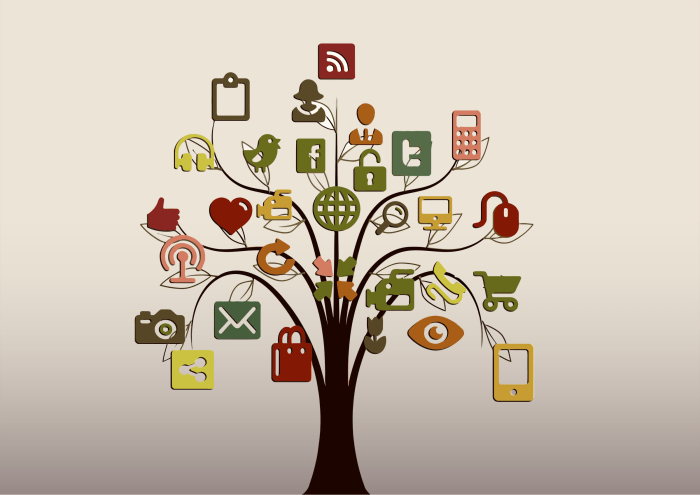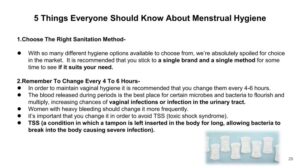
Social media addiction has emerged as a significant concern in our digital age, affecting millions of individuals worldwide. As we scroll through endless feeds, it’s easy to overlook the subtle signs of dependency, which can lead to profound psychological and emotional impacts. Understanding this phenomenon is crucial, not just for those personally affected, but also for society as we navigate the complexities of our online interactions.
This exploration will unpack the intricate relationship between social media use and its addictive qualities. We will delve into its health implications, particularly how it can exacerbate mental health conditions and influence physical well-being. Additionally, we will provide essential strategies for treatment and prevention, equipping readers with the tools needed to manage their social media habits effectively.
Understanding Social Media Addiction

Social media addiction has become a significant issue in today’s digital age, impacting individuals across various demographics. As platforms like Facebook, Instagram, and TikTok continue to evolve, many find themselves drawn into a cycle of compulsive use that can lead to negative consequences. Understanding the nuances of this addiction is essential for recognizing its signs, symptoms, and effects on mental health.Social media addiction is characterized by an excessive reliance on social media platforms, often leading to detrimental behavioral and emotional outcomes.
Individuals may find themselves spending hours scrolling through feeds, engaging in constant updates, and feeling anxious when unable to access their accounts. The psychological impact can include feelings of loneliness, depression, and anxiety, particularly when users compare their lives to curated online personas.
Signs and Symptoms of Social Media Addiction
Recognizing the signs of social media addiction is crucial for early intervention. The following list encapsulates key indicators that may suggest an individual is struggling with this form of addiction:
- Constant Checking: A persistent need to check notifications or messages, often leading to distractions from daily activities.
- Withdrawal Symptoms: Feelings of irritability, anxiety, or depression when not engaging with social media.
- Neglect of Responsibilities: A decline in performance in work, school, or personal relationships due to time spent online.
- Unrealistic Comparisons: Frequent feelings of inadequacy or dissatisfaction stemming from comparing oneself to others’ highlight reels on social media.
- Escalation of Use: A noticeable increase in time spent on social media, despite attempts to cut back.
Psychological and Emotional Impacts
The psychological and emotional effects of social media addiction can be profound and varied. Individuals often experience a range of emotions that can lead to long-term mental health concerns. The following points highlight some of the most common effects:
- Anxiety: Users may develop anxiety over their online presence, worrying about likes, comments, or how they are perceived by others.
- Depression: A lack of real-world social interactions can lead to feelings of isolation and depression.
- Low Self-Esteem: Constant comparison with others can erode self-confidence and promote negative self-image.
- Fear of Missing Out (FOMO): Users may feel compelled to stay online to avoid missing out on social events or trends.
- Sleep Disruption: Excessive use, particularly before bedtime, can interfere with sleep patterns, leading to fatigue and irritability.
Demographics Affected by Social Media Addiction
Social media addiction does not discriminate; it impacts a wide range of demographics, but certain groups tend to be more susceptible. Key demographics include:
- Adolescents: Young people are particularly vulnerable due to their developmental stage and need for social validation.
- Young Adults: Many engage heavily with social media for networking opportunities, often leading to compulsive usage.
- Middle-aged Individuals: As they adapt to new technology, some may find themselves grappling with addiction as they navigate online social circles.
- Parents: Balancing family life and social media can lead to increased screen time and the potential for addictive behaviors.
Understanding the dynamics of social media addiction is essential to address its prevalence and mitigate its effects. By recognizing the signs, emotional impacts, and demographics affected, we can foster better awareness and support for those struggling with this modern-day challenge.
Health Implications of Social Media Addiction
Social media addiction has far-reaching consequences that extend beyond mere engagement and usage patterns. The continuous interaction with social platforms can significantly impact mental and physical health, leading to a variety of conditions that affect overall well-being. Understanding these implications is crucial for recognizing the underlying risks associated with excessive social media use.
Mental Health Conditions
Social media addiction is closely linked to an increased risk of mental health disorders such as anxiety and depression. The constant comparison with others, exposure to curated lifestyles, and the pressure to present an ideal self can contribute to feelings of inadequacy and low self-esteem. Research indicates that individuals who spend excessive amounts of time on social media are more likely to experience symptoms of anxiety and depression.
A study published in the Journal of Social and Clinical Psychology found that limiting social media use to just 30 minutes a day can lead to significant improvements in mental health and well-being.
Excessive social media use has been shown to exacerbate feelings of isolation and loneliness, which are key factors in the development of anxiety and depression.
Physical Health Issues
The physical health effects of social media addiction are equally concerning, particularly regarding sleep disorders and a sedentary lifestyle. Engaging in screen time often interferes with sleep patterns, as the blue light emitted from devices disrupts the body’s natural circadian rhythm. This can lead to insomnia and other sleep-related issues.Moreover, excessive time spent on social media contributes to a sedentary lifestyle, which is associated with various health risks, including obesity, cardiovascular diseases, and metabolic syndrome.
A growing body of evidence suggests that young adults who are highly engaged in social media are more likely to neglect physical activity, leading to negative health outcomes.
Studies show that even small increments of physical activity can counteract the adverse effects of prolonged sedentary behavior.
Impact on Child Health
Children and adolescents are particularly vulnerable to the effects of social media addiction, which can lead to developmental issues. Early exposure to social media has been linked to impairments in social skills, as face-to-face interactions may be replaced with online communication. This shift can hinder emotional development and the ability to navigate real-world social situations effectively.Furthermore, excessive screen time can impact academic performance and lead to reduced attention spans.
Parents and educators are increasingly raising concerns about the implications of social media on children’s mental health, emphasizing the need for balanced usage. Research from the American Academy of Pediatrics suggests that children who spend more than two hours a day on recreational screen time may experience delays in language and literacy skills.
Childhood is a critical period for social and emotional development; excessive social media use can disrupt this process.
Treatment and Prevention Strategies
Social media addiction can have significant impacts on individuals, but there are effective treatment and prevention strategies available. These strategies range from alternative therapies to structured wellness plans that promote overall mental and physical health. Addressing social media addiction requires a multifaceted approach that combines mindfulness, therapy options, and responsible monitoring by parents and guardians.
Alternative Treatments for Managing Social Media Addiction
Mindfulness and therapy options can be beneficial in managing social media addiction. Mindfulness practices help individuals become more aware of their social media usage patterns and the emotions associated with them. One effective method is mindfulness meditation, which encourages individuals to focus on their present moment experiences without judgment. Cognitive Behavioral Therapy (CBT) is another option that targets the underlying thoughts and behaviors connected to social media use.
CBT helps individuals replace negative thought patterns about social media engagement with healthier alternatives. For those seeking group support, therapies like Dialectical Behavior Therapy (DBT) can provide community understanding and accountability, creating a supportive environment for change.
Strategies for Parents to Monitor and Limit Children’s Social Media Use
Monitoring and limiting children’s social media use requires a proactive approach by parents. Establishing clear guidelines and boundaries is essential. Here are several strategies to consider:
- Set time limits on social media usage to encourage more balanced activities.
- Engage in open discussions about the content being consumed and the importance of digital citizenship.
- Encourage offline activities, such as sports or hobbies, to reduce screen time.
- Utilize parental control apps that allow monitoring of social media activity.
- Co-view social media platforms to foster conversations about online behavior and safety.
These strategies foster communication and understanding, helping children develop a healthier relationship with social media.
Wellness Plan to Counteract Social Media Addiction
Developing a comprehensive wellness plan can effectively combat social media addiction. Such a plan should encompass fitness, nutrition, and mental health practices. Here’s a structured Artikel of what this wellness plan can include:
- Fitness: Incorporate regular physical activities such as exercise classes, walking or hiking, and joining local sports teams to promote a healthier lifestyle and reduce screen time.
- Nutrition: Focus on a balanced diet rich in whole foods, fruits, and vegetables, while limiting processed foods and sugars, which can affect mood and energy levels.
- Mental Health Practices: Engage in activities like yoga, meditation, or journaling to enhance mental well-being and provide a constructive outlet for emotions.
- Digital Detox: Schedule regular breaks from all digital devices to recalibrate the mind and foster real-world connections.
This holistic approach ensures not only a reduction in social media dependence but also promotes a healthier lifestyle overall. By following a structured wellness plan, individuals can find balance and improve their relationship with technology.
Last Recap

In conclusion, social media addiction presents a multifaceted challenge that requires awareness and proactive management. By understanding its signs, health implications, and viable treatment strategies, we can reclaim our time and mental health from the grips of excessive online engagement. Let’s take these insights and foster healthier relationships with our digital worlds, promoting well-being in both our online and offline lives.
Query Resolution
What are the signs of social media addiction?
Common signs include excessive use, neglecting responsibilities, and feeling anxious when not using social media.
Can social media addiction affect children differently?
Yes, children may experience developmental delays, anxiety, or social skills deficits due to heavy social media use.
How can I prevent social media addiction in my family?
Setting usage limits, encouraging offline activities, and fostering open discussions about social media can help.
Is there a difference between social media use and addiction?
Yes, while use can be healthy and beneficial, addiction leads to negative consequences in personal and social realms.
What therapies are effective for social media addiction?
Mindfulness practices, cognitive behavioral therapy, and support groups are effective options for tackling this addiction.





